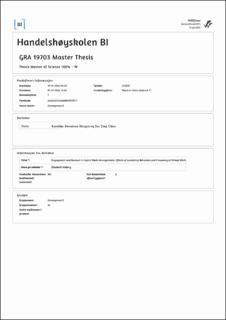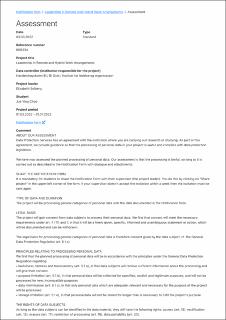| dc.description.abstract | In the post-pandemic era, hybrid work is poised to become the dominant working
arrangement of the future. However, little is known about the effects of hybrid work
arrangements (HWAs) on employee outcomes, and how managers should lead in
HWAs.
JD-R theory was adopted as a theoretical lens to investigate how frequency of
virtual work in HWAs, task-oriented, and relations-oriented leadership behaviors are
related to employee engagement and burnout. A hypothesized moderation effect of
frequency of virtual work on relationships between both types of leadership
behaviors with engagement and burnout was also examined.
Data was collected via online questionnaire from 336 employees in a Norwegian
maritime company. Correlation analysis found a significant and negative
relationship between frequency of virtual work and engagement, and no significant
relationship was found with burnout. Task-oriented and relations-oriented leadership
behaviors were significantly and positively related to engagement and negatively
related to burnout. The hypothesized moderation relationship was not found.
Instead, when leadership behaviors were also taken into account, frequency of
virtual work no longer negatively predicted employee engagement, while leadership
positively predicted employee engagement. Post-hoc analysis examining specific
leadership behaviors revealed that planning and delegating behaviors were
consistently the strongest predictors of both engagement and burnout. Findings seek
to inform future organizational policy regarding working arrangements, suggesting
that companies can implement HWAs without compromising employee outcomes of
burnout and engagement.
Keywords: hybrid work, virtual work, telework, leadership behaviors, Job
Demands-Resources model, engagement, burnout | en_US |

